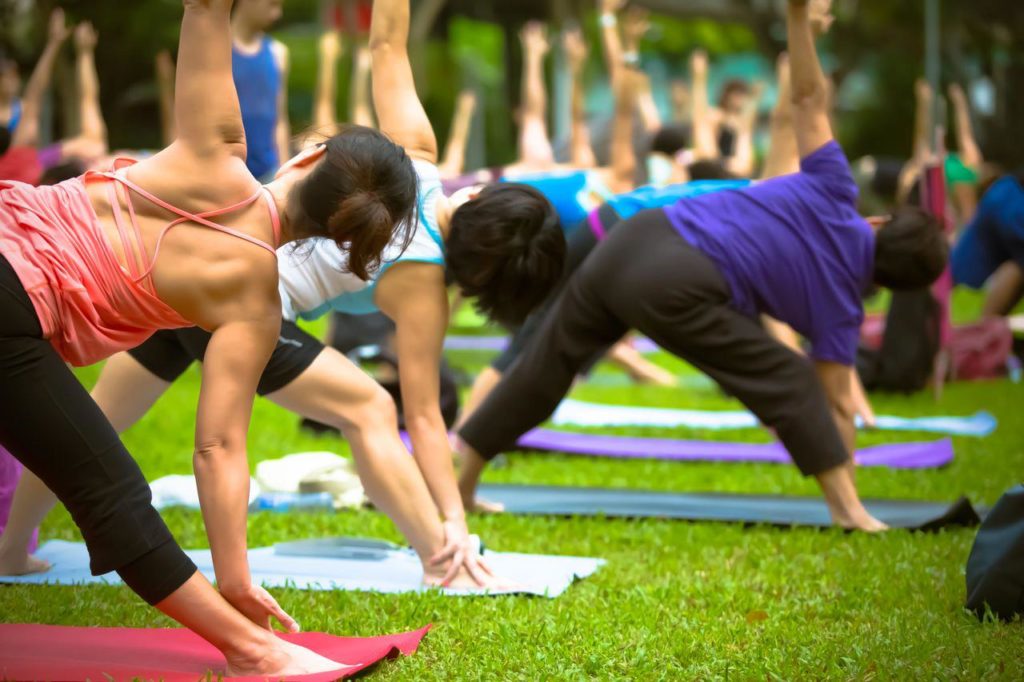Share This Article
Achieving optimal fitness requires more than just hitting the gym a few times a week. It involves adopting a holistic approach that encompasses various aspects of our lives, including diet, sleep, stress management, and physical activity.
In this blog post, we’ll explore five healthy lifestyle changes that you can make to improve your overall fitness and well-being.
1. Regular Exercise
Regular physical activity is essential for optimal health and fitness. It can help strengthen muscles and bones, reduce the risk of chronic diseases, and improve mental health. The American Heart Association recommends at least 150 minutes of moderate-intensity aerobic exercise or 75 minutes of vigorous-intensity aerobic exercise per week. Examples of moderate-intensity aerobic exercise include brisk walking, cycling, and swimming, while vigorous-intensity activities include running, high-intensity interval training (HIIT), and dancing.

Strength training is also an essential component of fitness. It can help increase muscle mass, boost metabolism, and improve overall body composition. The American College of Sports Medicine recommends strength training at least two days a week, targeting all major muscle groups.
2. Balanced Diet
A balanced diet is critical for maintaining optimal health and fitness. It should include a variety of nutrient-dense foods such as whole grains, fruits and vegetables, lean proteins, and healthy fats. Processed foods, sugary drinks, and saturated fats should be limited as much as possible.

To maintain a balanced diet, it’s essential to pay attention to portion sizes and practice mindful eating. Mindful eating involves paying attention to hunger and fullness cues, eating slowly, and enjoying the taste and texture of the food. It can help prevent overeating and promote a healthy relationship with food.
3. Adequate Sleep
Getting enough quality sleep is essential for overall health and fitness. Sleep helps our bodies repair and rejuvenate, and lack of sleep can have a negative impact on mental and physical performance. The National Sleep Foundation recommends that adults get 7-9 hours of sleep per night.

To improve sleep quality, it’s essential to establish a regular sleep schedule and create a relaxing sleep environment. Avoiding caffeine and electronics before bedtime can also promote better sleep quality.
4. Stress Management
Stress can have a negative impact on both mental and physical health. Finding healthy ways to manage stress can help improve overall fitness and well-being. Mindfulness meditation, yoga, and deep breathing exercises are effective stress-management techniques that can help reduce stress levels.

Engaging in relaxing activities such as reading, listening to music, or taking a warm bath can also promote relaxation and reduce stress levels. Additionally, it’s essential to prioritize self-care and engage in activities that bring joy and fulfillment.
5. Stay Hydrated
Drinking adequate water is essential for maintaining good health and fitness. Dehydration can cause fatigue, headaches, and reduced physical performance. Drinking at least eight glasses of water per day can help keep your body hydrated, aid digestion, and support overall health.

In addition to water, it’s important to consume other hydrating fluids such as herbal tea, coconut water, and low-sugar sports drinks. Limiting alcohol and sugary beverages is also critical for maintaining optimal hydration.
Incorporating these healthy lifestyle changes into your daily routine can have a significant impact on your overall fitness and well-being. It’s important to remember that making sustainable, gradual changes that work for you and your individual needs is key to achieving long-term success.
Start by identifying areas of your life that could benefit from improvement, and set achievable goals that align with your values and priorities. Remember to celebrate small victories along the way and practice self-compassion when setbacks occur.
In conclusion, optimal fitness involves adopting a holistic approach that encompasses various aspects of our lives. Regular exercise, balanced diet, adequate sleep, stress management, and hydration are essential components.
